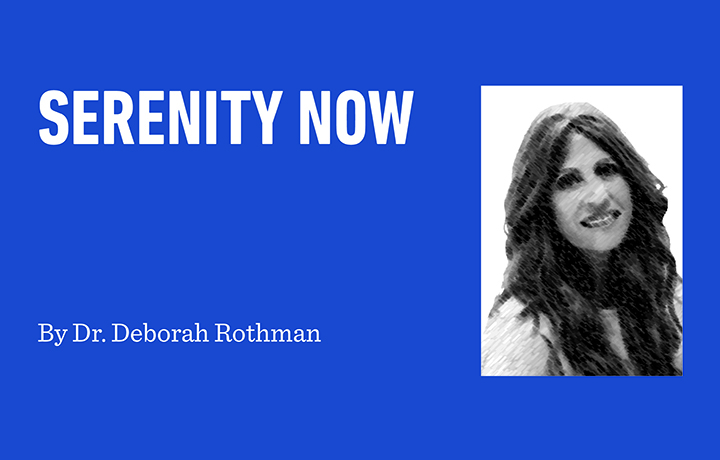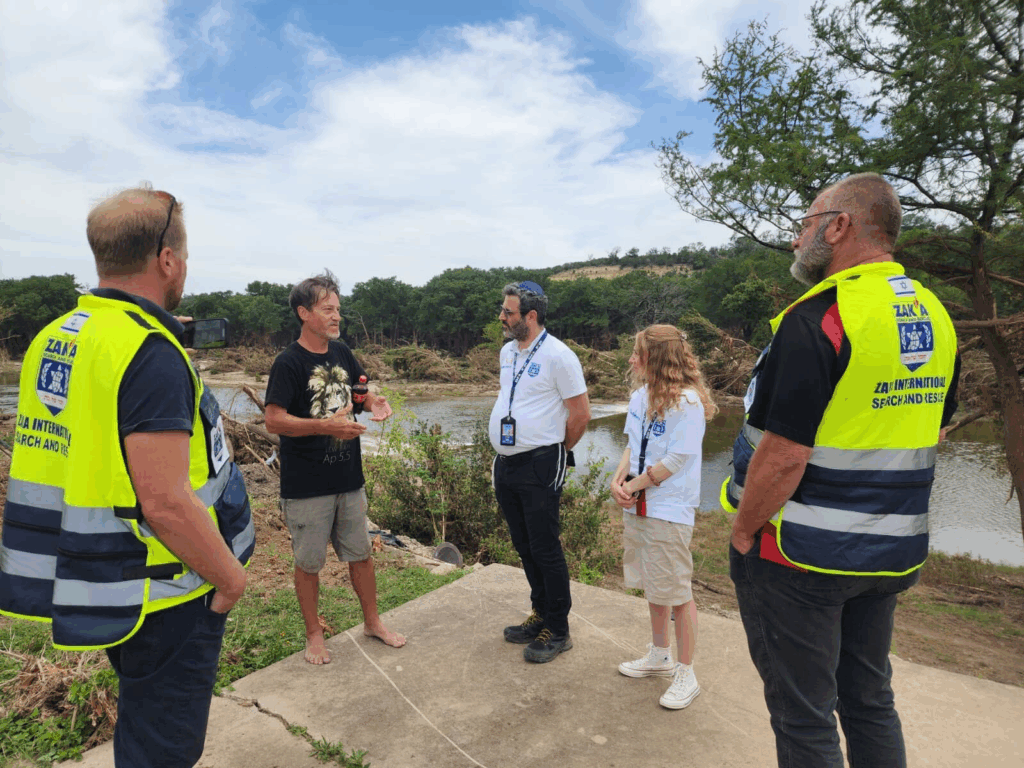In Its First Year, ICAR Collective Accelerates Israel’s Mental Health Response To Oct. 7 Through Strategic Coordination
In Its First Year, ICAR Collective Accelerates Israel’s Mental Health Response To Oct. 7 Through Strategic Coordination
In its first year, ICAR Collective, Israel’s Collective Action for Resilience, laid the groundwork for a coordinated national response to the unprecedented emotional trauma and impact to mental health stemming from October 7 and the conflicts that followed. Its first annual report, released earlier this month, outlines the mental health emergency that Israel is facing, with over 60 percent of Israelis reporting post-traumatic stress symptoms, wait times for care exceeding six months, and families remaining in limbo with hostages still unreturned.
With traditional therapy models unable to meet the scale of need, ICAR Collective is leading the push for scalable, community-based mental health solutions grounded in evidence and informed by public health models. Founded in the aftermath of the October 7 attacks, ICAR Collective was created to address critical gaps in the nation’s fragmented mental health infrastructure and to build a coordinated and unified, evidence-based approach to collective trauma recovery. It is already advancing efforts to fill the most urgent structural gaps: expanding the trauma-trained workforce, enabling real-time data sharing, and launching a national psychoeducation campaign to normalize trauma responses and reduce stigma before symptoms become chronic.
In its first year, ICAR Collective mapped more than 400 organizations and 120 mental health technology start-up ventures in partnership with Start-Up Nation Central and Bezyl, convened more than 300 experts and decision-makers at its inaugural ICAR Summit, and worked across sectors to coordinate Israel’s mental health response to the mass trauma resulting from the October 7 terror attacks and the wars that followed. It also helped to guide more than US$15 million towards initiatives responding to Israel’s mental health crisis.
“This is about more than responding to trauma—it’s about reimagining how an entire country heals,” said ICAR Collective Co-founder and Executive Director Gila Tolub, who prior to Oct. 7, 2023 ran McKinsey & Company’s vaccine and health practices. “Our challenge is not just to treat emotional trauma, but to design a national system that can absorb it, respond to it, and ultimately grow stronger because of it.”
Realizing the need for a significant national psycho-trauma and resilience education campaign, the organization is in the final stages of launching its US $2.6 million initiative to reach more than 10 million Israelis. This campaign aims to equip individuals with the knowledge to understand emotional responses, support one another, and know when and how to seek help.
“We are working to embed resilience across every layer of Israeli life, from classrooms and clinics to workplaces and communities. And we know that what we build here can set a blueprint for the world,” said Tolub.
In addition to its national education campaign, ICAR Collective’s report outlines urgent and scalable priorities for national recovery, including the creation of an emotional health surveillance system, to track psychological needs in real time, and connecting the Start-Up Nation’s innovation to NGOs to integrate AI tools, neurofeedback therapies, and technology-enabled mental health screenings into mainstream care. ICAR Collective is also working with the Ministry of Health and the organization’s clinical partners in defining national quality standards.
ICAR Collective’s mission is to help Israel not only respond to trauma but also prepare for it systemically. The organization serves as a strategic coordinator, helping to link siloed efforts across government, NGOs, HMOs, academia, and the tech sector, while identifying gaps in data and amplifying what works.
“The trauma facing Israeli society is not over, with delayed symptoms, secondary mental health breakdowns, and long-term social impacts still to come,” said ICAR Collective Co-Founder and Director of Medical & Scientific Affairs Prof. Eyal Fruchter, M.D., a leading national psychiatrist and former chief of mental health for the IDF Medical Corps. “Without urgent, system-level investments, Israel’s mental health infrastructure will buckle under the weight of a prolonged crisis.”
“ICAR Collective’s mission is not a short-term emergency intervention; it is a long-term systemic shift. It’s about preparing Israel for what’s next—building resilience into the very fabric of our society. What we do here has the potential to reshape how the world understands and addresses collective trauma,” Fruchter added.
While ICAR Collective’s model is being developed to respond to the immediate needs of Israel, it is also being built as a scalable template, a playbook, for trauma coordination in national disasters, including violence or natural disasters.
Read ICAR Collective’s Annual Impact Report at ICARCollective.org/annualreport. nIn its first year, ICAR Collective, Israel’s Collective Action for Resilience, laid the groundwork for a coordinated national response to the unprecedented emotional trauma and impact to mental health stemming from October 7 and the conflicts that followed. Its first annual report, released earlier this month, outlines the mental health emergency that Israel is facing, with over 60 percent of Israelis reporting post-traumatic stress symptoms, wait times for care exceeding six months, and families remaining in limbo with hostages still unreturned.
With traditional therapy models unable to meet the scale of need, ICAR Collective is leading the push for scalable, community-based mental health solutions grounded in evidence and informed by public health models. Founded in the aftermath of the October 7 attacks, ICAR Collective was created to address critical gaps in the nation’s fragmented mental health infrastructure and to build a coordinated and unified, evidence-based approach to collective trauma recovery. It is already advancing efforts to fill the most urgent structural gaps: expanding the trauma-trained workforce, enabling real-time data sharing, and launching a national psychoeducation campaign to normalize trauma responses and reduce stigma before symptoms become chronic.
In its first year, ICAR Collective mapped more than 400 organizations and 120 mental health technology start-up ventures in partnership with Start-Up Nation Central and Bezyl, convened more than 300 experts and decision-makers at its inaugural ICAR Summit, and worked across sectors to coordinate Israel’s mental health response to the mass trauma resulting from the October 7 terror attacks and the wars that followed. It also helped to guide more than US$15 million towards initiatives responding to Israel’s mental health crisis.
“This is about more than responding to trauma—it’s about reimagining how an entire country heals,” said ICAR Collective Co-founder and Executive Director Gila Tolub, who prior to Oct. 7, 2023 ran McKinsey & Company’s vaccine and health practices. “Our challenge is not just to treat emotional trauma, but to design a national system that can absorb it, respond to it, and ultimately grow stronger because of it.”
Realizing the need for a significant national psycho-trauma and resilience education campaign, the organization is in the final stages of launching its US $2.6 million initiative to reach more than 10 million Israelis. This campaign aims to equip individuals with the knowledge to understand emotional responses, support one another, and know when and how to seek help.
“We are working to embed resilience across every layer of Israeli life, from classrooms and clinics to workplaces and communities. And we know that what we build here can set a blueprint for the world,” said Tolub.
In addition to its national education campaign, ICAR Collective’s report outlines urgent and scalable priorities for national recovery, including the creation of an emotional health surveillance system, to track psychological needs in real time, and connecting the Start-Up Nation’s innovation to NGOs to integrate AI tools, neurofeedback therapies, and technology-enabled mental health screenings into mainstream care. ICAR Collective is also working with the Ministry of Health and the organization’s clinical partners in defining national quality standards.
ICAR Collective’s mission is to help Israel not only respond to trauma but also prepare for it systemically. The organization serves as a strategic coordinator, helping to link siloed efforts across government, NGOs, HMOs, academia, and the tech sector, while identifying gaps in data and amplifying what works.
“The trauma facing Israeli society is not over, with delayed symptoms, secondary mental health breakdowns, and long-term social impacts still to come,” said ICAR Collective Co-Founder and Director of Medical & Scientific Affairs Prof. Eyal Fruchter, M.D., a leading national psychiatrist and former chief of mental health for the IDF Medical Corps. “Without urgent, system-level investments, Israel’s mental health infrastructure will buckle under the weight of a prolonged crisis.”
“ICAR Collective’s mission is not a short-term emergency intervention; it is a long-term systemic shift. It’s about preparing Israel for what’s next—building resilience into the very fabric of our society. What we do here has the potential to reshape how the world understands and addresses collective trauma,” Fruchter added.
While ICAR Collective’s model is being developed to respond to the immediate needs of Israel, it is also being built as a scalable template, a playbook, for trauma coordination in national disasters, including violence or natural disasters.
Read ICAR Collective’s Annual Impact Report at ICARCollective.org/annualreport. n













